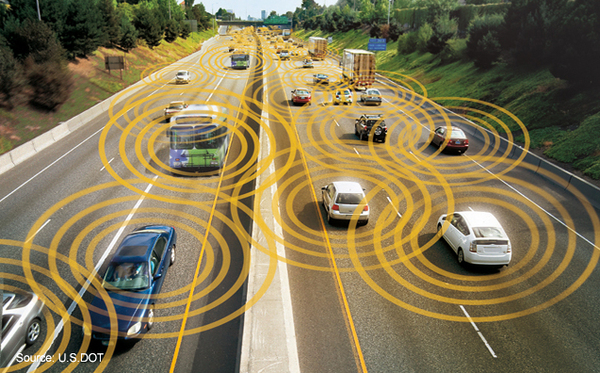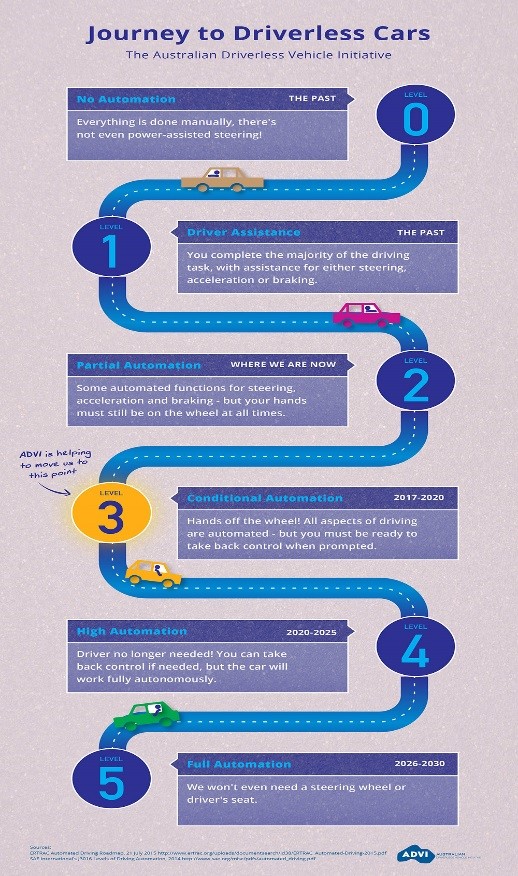
Staying ahead with driver-less tech
Director Jo Garretty was invited by AITPM to speak in Canberra in regards how driver-less cars will impact our lives and cities. We found the impact this technological advancement will have is significant. The time people will save, convenience of no parking, ability to re purpose car parks and the environmental impacts are all enormous feats. Here are more findings.
At the pace we are advancing, many of us will be “driving” driver-less cars sooner than many expected, which will have a profound impact on our day-to-day lives and how we interact with our cities. Those who adopt modern technology will be exposed to a different way of life, but is Australia keeping up?
Australia is ahead of Europe, who had a 10km/h limit on test vehicles until recently, and behind USA as we enter stage 2 (See graph below) of the journey to driver-less cars with the introduction of Tesla’s Model S to our streets. Australian Driverless Vehicles Initiative (ADVI) is focussing on how we can move into the third stage effectively, but stage 3 will have several pros and cons.
There are so many benefits for when this happens including mobility for young and old, increased safety on our roads as technology doesn’t get distracted, more time and increased productivity. One facet I hadn’t previously thought of is the need for inner city parking will vanish, as your car can drop you at the front door and return to collect you when you are ready.
The transition period will not be easy and there are many challenges governments will face when attempting to implement these into the mainstream. The technology required to run these cars hands free with instrumentally high safety standards will demand considerably faster internet speeds to communicate between cars and recognise hazards. As with all technology advancements there will be glitches to begin with, people and insurance companies will debate over who’s at fault and where the responsibility lies, and death may delay progress.
The negatives include government losing revenue through speeding fines, parking tickets and petrol taxes. Jobs will be lost including taxi and truck drivers, parking ticket inspectors, traffic lawyers, surgeons and specialists operating, nurses plus more.
We must also hope the renewable energy sector triumphs over driver-less cars, otherwise we will have an abundance of empty cars driving the streets to avoid parking whilst burning fossil fuels and continuing to pollute the planet.
The largest difficulty we see is that for these advancements to become mainstream it must be affordable. The race is on between some of the largest companies in the world, notably BMW’s SMART cars, Google’s brainchild WAYMO, Ford, Tesla, GM, and Uber to name a few.
The fundamental issues is that these competitors have one of two specialties, either manufacturing or technology. For mass production and ease of use, whoever is the first to merge the two should win the race.
SALT is giving this prospect ample thought and observing progress closely as for some of us, it may even be our next car.

